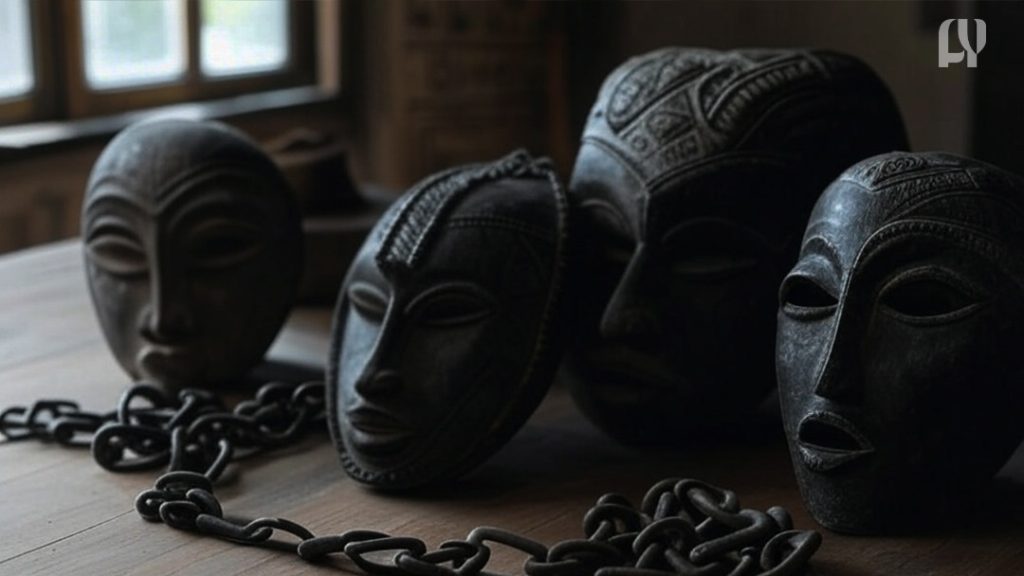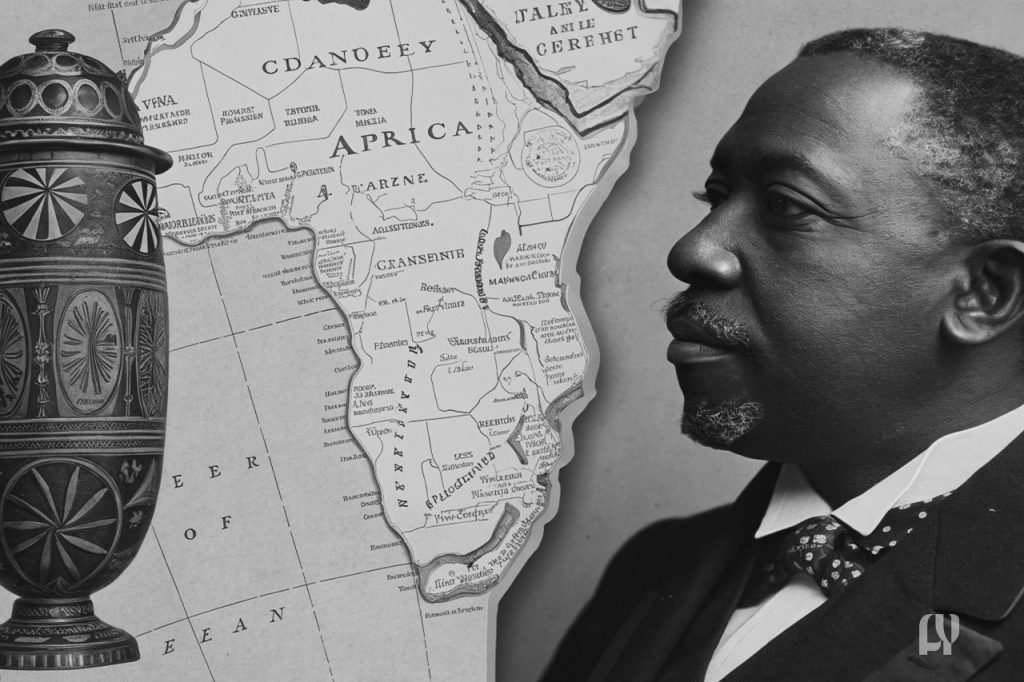The Destruction of Black Civilisation: Unravelling Stolen Legacies and the Quest for Reclamation
Chancellor Williams’ Seminal Work Exposes Centuries of Erasure—And Lights the Path to Revival
In 1971, historian Chancellor Williams ignited a revolution not of arms, but of minds. After sixteen years of meticulous research across Africa, Europe, and the Americas, he presented his magnum opus. The Destruction of Black Civilisation challenged the world to confront a buried truth. The systematic dismantling of Africa’s ancient glory was no accident. It was a calculated campaign of stolen legacies, cultural erasure, and psychological warfare.
Williams’ work emerged during the intellectual awakening of the Black Power movement. It dared to ask a profound question. If Africa birthed civilisation, why does its story start in chains? This article delves into Williams’ revelations. It traces the theft of African heritage and the fractures within. It also highlights the unyielding resilience that fuels the continent’s reckoning with its past and reclamation of its future.
The Theft of African Legacies: How Imperialism Rewrote History
Williams’ research begins in the dust of ancient cities, where the fingerprints of foreign plunderers still linger. The stolen legacies of Africa, he argues, are not merely lost artefacts but erased narratives. The looting of Benin’s bronze treasures was systematic. Additionally, Europe’s claim of Egypt’s pyramids as a “Caucasian achievement” demonstrates the methodical degradation of African contributions. Arab and European invaders, he writes, “did not just take gold or captives; they took our memory.”

The trans-Saharan and transatlantic slave trades exemplify this duality of physical and cultural destruction. Enslaved Africans were stripped of their names, languages, and religions, severing ties to ancestral knowledge. Meanwhile, colonial powers like Britain and France institutionalised theft, hoarding sacred artefacts in museums while peddling myths of African “savagery.” Williams notes, “To justify theft, one must first make the owner seem unworthy of ownership.”
A people without knowledge of their past are like a tree without roots.
Yet the most insidious stolen legacies lie in academia. Eurocentric historians relegated Africa to the “Dark Continent”, ignoring advanced societies like Timbuktu, where 700,000 manuscripts once thrived in libraries. “When people are told they have no history,” Williams writes, “they start to believe they have no future.”
Fractures Within: Tribal Divisions and the Collapse of Unity
While external forces sowed chaos, Williams refuses to absolve African societies of complicity. “Our enemies exploited weaknesses we neglected to mend,” he asserts. The book dissects how tribalism and decentralised governance left kingdoms vulnerable. For example, the fall of the Songhai Empire in 1591 was hastened by Moroccan invaders. Internal rivalries also blinded rulers to impending threats.
The Ashanti and Zulu kingdoms, though powerful, often prioritised regional dominance over continental solidarity. Williams contrasts this with Europe’s nation-state model, arguing that Africa’s reluctance to unite politically made colonisation inevitable. “A house divided can’t endure,” he warns, “and ours was a continent of many houses.”
This internal disunity, he contends, persists today. Post-colonial nations, carved by foreign powers at the 1884 Berlin Conference, inherited artificial borders that reignited ethnic tensions. “We are fighting ghosts,” Williams laments, “ghosts of divisions our ancestors did not create but not escape.”
Chancellor Williams’ book The Destruction of Black Civilization shows how Africa’s history was stolen by colonisers and hidden by Eurocentric lies. It talks about the great African empires that fell because of slavery, division, and greed, and how Black people must reclaim their past to build a stronger future.
Reclaiming Stolen Legacies: The Blueprint for Renaissance
Hope pulses through Williams’ work. The final chapters shift from autopsy to action, advocating for a revival rooted in reclaiming stolen legacies. “Our history is not a graveyard,” he declares, “but a seedbed.” Education is key to this. Curricula need to be rewritten to celebrate pre-colonial achievements like Great Zimbabwe’s architecture. They should also include the mathematical genius of the Dogon people.
Economic self-sufficiency forms another pillar. Williams praises Ghana’s Kwame Nkrumah and Tanzania’s Julius Nyerere for championing Pan-African trade networks, though he critiques their stumbles. “True independence”, he argues, “begins when we feed ourselves with our crops, not imported scraps.”
They didn’t just steal our land they stole our memory, then told us we never had one.
Today, movements echo his vision. The repatriation of Benin Bronzes from European museums and DNA-driven reconnections among the African diaspora exemplify reclaimed legacies. Scholars like Dr Cheikh Anta Diop have expanded Williams’ work. They used linguistics and archaeology. Their research proves Africa’s foundational role in human civilisation.
Conclusion: A Call to Dig, Remember, and Rebuild
The Destruction of Black Civilisation ends not with despair but with a challenge: “What will you do with the ruins?” Fifty years later, its message reverberates in Black Lives Matter protests, Afrofuturist art, and demands for reparations. Williams’ genius lay in unmasking the stolen legacies that shackled a continent and handing readers the tools to break free. As Africa confronts neocolonialism and climate crises, his plea remains urgent. He urges, “To build anew, we must first recover what was lost. We must never again forget who we were.”

FAQs: The Destruction of Black Civilization Stolen Legacies of Africa
Why do some still deny Africa’s role as the cradle of civilisation?
The denial is rooted in centuries of stolen legacies and deliberate erasure by colonisers who rewrote history to justify exploitation. It’s easier to claim Black inferiority than to admit Europe built its wealth on plundered African knowledge, labour, and artefacts.
Weren’t Africans responsible for their downfall?
This racist myth ignores 500 years of Arab/European invasions, slavery, and colonialism that destabilised thriving societies. Blaming victims for their oppression is a tactic to absolve genocide and the ongoing exploitation of Africa’s resources.
What’s the harm in Eurocentric history curricula?
Teaching whitewashed lies as “fact” gaslights generations into believing their ancestors contributed nothing. It’s psychological warfare eroding pride in Black youth while glorifying the thieves who looted their heritage.
Why dwell on the past instead of moving ahead?”
Because the past isn’t past. Museums still hoard stolen legacies. Corporations profit from colonially drawn borders. Anti-Black racism thrives on the myth of “civilising” savages. You can’t heal a wound you refuse to acknowledge.
Who benefits from suppressing African history?
White supremacy. By erasing Africa’s global contributions from math to medicine, Eurocentric powers continue the lie of Black inferiority. It’s not ignorance; it’s a calculated strategy to uphold systemic oppression.




